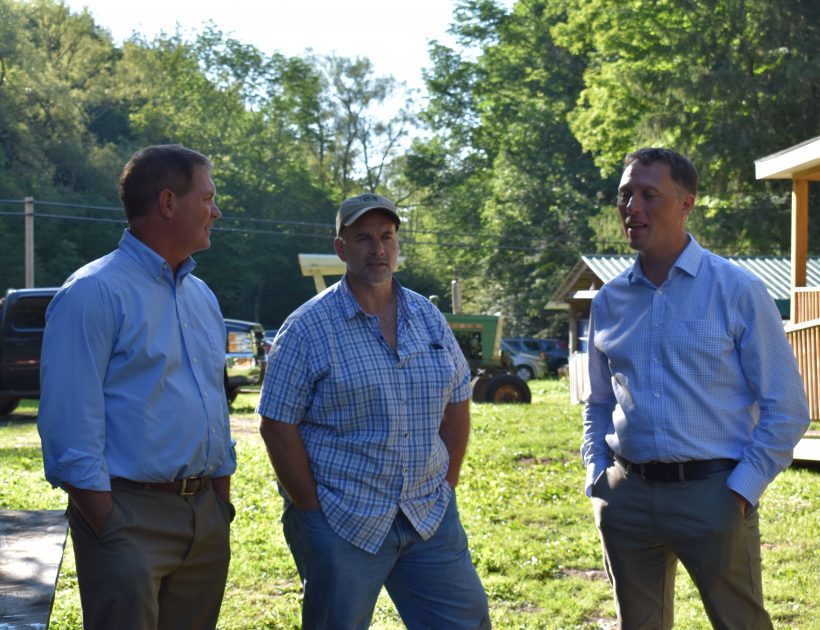During the month of July, the Watershed Agricultural Council (WAC) welcomed Tom Ormesher of South East England who is the National Farmer’s Union (NFU) South East’s Environment and Land Use Adviser. Ormesher spent two days touring the NYC Watershed region, our farms and NYC’s reservoirs learning how the WAC works with farmers on a voluntary basis to protect water quality.
“My role at the NFU involves working with farmers and growers to help them respond to environmental risks and navigate the complexities of environmental and planning regulation, so this project is entirely focused on how I can deliver better value for NFU members in the future,” said Ormesher.
The NYC Watershed was Ormesher’s last stop has he had finished his Nuffield Scholarship Tour. Bringing together representatives of several countries to visit farms on four continents, examining how each manages the connection between farms and environmental protection and explore market-based, commercial approaches to managing the water environment. He decided to add the NYC Watershed due to his own interest in our agriculture and water quality programs. As he explained, “This Watershed protection effort is internationally famous and I wanted to see it for myself.”
WAC Council Chair Sally Fairbairn hosted Ormesher. Over his two day visit, he toured four local farms with the guidance of Brian LaTourette, longtime WAC farm planner. Farmer’s discussed the best management practices on their farms, incentivized nutrient management programs, federal stream protection programs, diversification and even an innovative use for drones to track corn plant population in an experiment comparing the successes of regular corn seed compared to bird repellent-treated seed.
As Ormesher reflected on his trip he noted that he was impressed by how well WAC staff worked with farmers and the trust level evident between the two, as well as how serious WAC participating farmers are about water protection. There are always doubts about whether a voluntary water protection program can work, butu7 the NYC Watershed model shows that it can.

